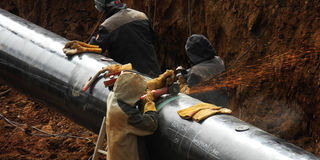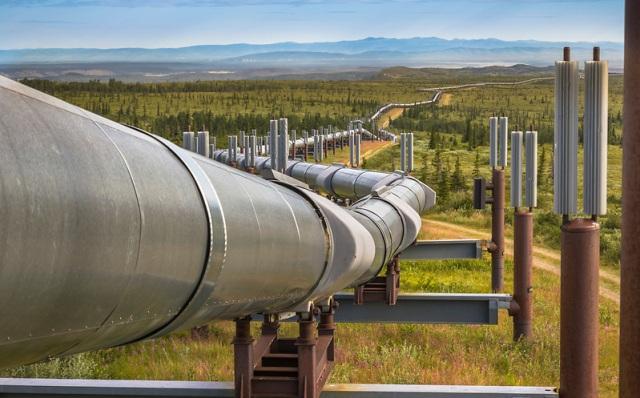Court halts case against construction of pipeline

What you need to know:
The case is filed against the Attorney General of Uganda, Tanzania and the EAC Secretary General
East African Court of Justice (EACJ) has halted the case in which four East African civil society organisations had sought a temporary injunction to stop the development of the East African Crude Oil Pipeline (EACOP) project.
The case is filed against the Attorney General of Uganda, Tanzania and the EAC Secretary General.
However, court yesterday halted hearing of the case until the final disposal of an application for a temporary injunction in which Mr Gabriel Malata, the Tanzania solicitor general objects to the case being heard by the EACJ on ground that it has no jurisdiction to hear the matter.
The applicants include; Center for Food and Adequate Living Rights, African Institute for Energy Governance, Natural Justices Kenya and Center for Strategic Litigation Limited.
The four argue that the East Africa Crude Oil Pipeline project is environmentally untenable and will extend to protected areas in East Africa with undue regard to livelihoods, gender, food security, children, and public health of East Africans.
Therefore, they sought a declaration that the execution of the EACOP in legally protected areas contravenes the EAC Treaty. However, acting through their lawyers, they argue they will show why the EACJ has the jurisdiction to hear the case.
The lawyer observed that hearing of the application for a temporary injunction should be fast tracked to protect the environment and communities’ livelihoods.
Court adjourned the hearing until the issue of jurisdiction and other preliminary objections are resolved.
This means that court will first have to determine if the EACJ has jurisdiction to hear the case, among others, before the application for a temporary injunction is heard.
Both the main case and application for a temporary injunction were filed in November 2020.
Since then, the case has been heard once, in July 2021.
Given the significance of the case, the postponement of the case without clear timelines as to when the case will be concluded is an issue of concern.
Lawyers for the applicants argue that the postponement is a marked departure from the principle of prevention which requires the earliest possible intervention to protect the environment rather than look to repairing the damage once it is done.
Panel of judges
The case is before a panel of judges, among which include Justice Yohane Masara, Justice Dr Charles Nyawello, Justice Charles Nyachae, Justice Richard Muhumuza, and Justice Richard Wejuli.





